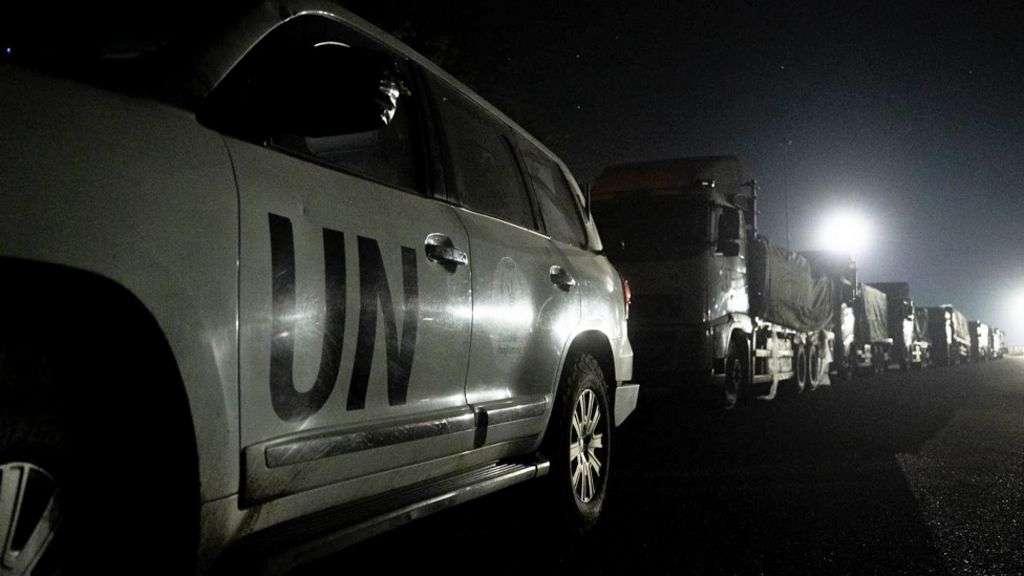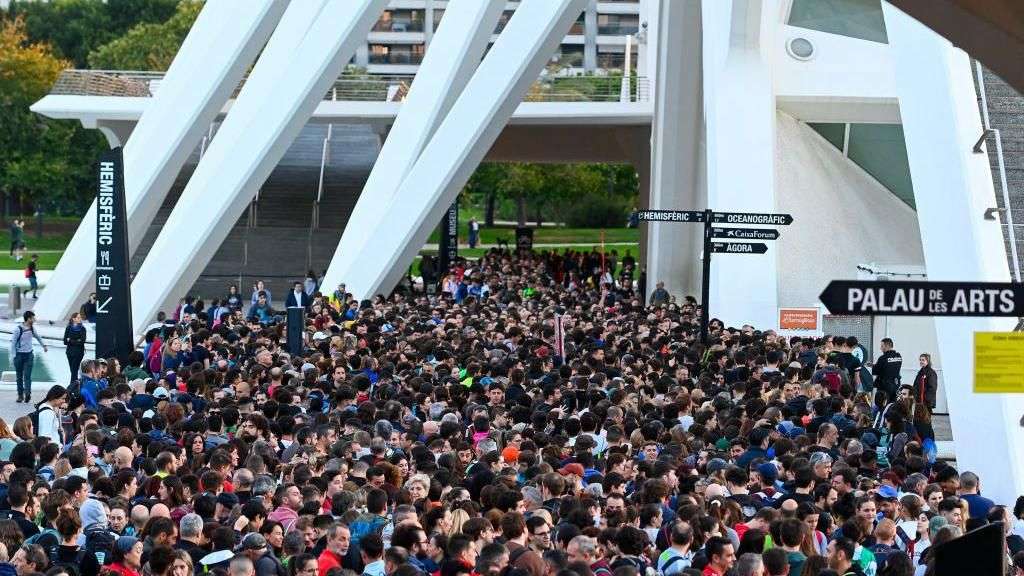The UN says a new land route has been used to deliver food to northern Gaza for the first time in three weeks. The Israeli military said six lorries from the World Food Programme crossed via a gate in the Gaza border fence. Tuesday night's delivery was "part of a pilot to prevent Hamas from taking over the aid", it added. It comes amid global pressure on Israel to allow more access to the Palestinian territory for aid amid a looming famine as it continues its war on Hamas. A boat carrying 200 tonnes of food aid for distribution by a charity also set sail from Cyprus on Tuesday, inaugurating a new maritime corridor into the Palestinian territory. It is expected to arrive on Thursday off Gaza's coast, where a jetty is being built. Senior UN officials welcomed the initiative, but noted that "for aid delivery at scale there is no meaningful substitute to the many land routes and entry points from Israel into Gaza". Israel insists there are no limits to the amount of aid that can be delivered into and across Gaza and blames UN agencies for failing to distribute supplies. The war began when Hamas gunmen attacked southern Israel on 7 October, killing about 1,200 people and seizing 253 hostages. More than 31,200 people have been killed in Gaza since then, the Hamas-run health ministry says. The UN says at least 576,000 Palestinians in Gaza - one quarter of the population - are one step away from famine. It warns that time is running out for the estimated 300,000 people with little food or clean water in the north of the territory, which UN agencies have struggled to access for several months. Gaza's Hamas-run health ministry says 27 people, including 23 children, have died as a result of malnutrition and dehydration at hospitals there. UN officials said the World Food Programme (WFP) convoy was able to use an Israeli military road that runs along the Gaza border fence to reach the north and deliver enough food for 25,000 people - about 88 tonnes of food parcels and wheat flour - to Gaza City after nightfall on Tuesday. WFP spokeswoman Shaza Moghraby said the delivery proved that "moving food by road is possible". "We are hoping to scale up, we need access to be regular and consistent especially with people in northern Gaza on the brink of famine," she told Reuters news agency. "We need entry points directly to the north." Israeli security officials carried out a prior security check on the aid lorries at the Kerem Shalom crossing with southern Gaza, the military said, adding that the pilot's results would be presented to government officials. "We are constantly trying to find creative ways to maintain the flow of humanitarian supplies into Gaza," military spokesman Lt Col Peter Lerner wrote on X, formerly Twitter. White House National Security Adviser Jake Sullivan said on Tuesday that the US was "working with the Israelis to increase the throughput of humanitarian assistance by ground, both through Kerem Shalom and through a new crossing where we had the first trucks get in last night". "We need to see more where that came from," he added. Almost all of the limited aid that has reached northern Gaza has been delivered via the Israeli-controlled Kerem Shalom and the Egyptian-controlled Rafah crossings, which are in southern Gaza, and then distributed by lorries. However, the UN says "ongoing fighting and Israeli bombardment, as well as insecurity, frequent border closures and access constraints" have impeded safe and efficient aid operations. On 20 February, the WFP said it had been forced to suspend aid deliveries to the north after its first convoy in three weeks was surrounded by hungry crowds close to an Israeli checkpoint and then faced gunfire in Gaza City. Nine days later, more than 100 people were killed trying to reach an aid convoy south-west of Gaza City, according to Gaza's health ministry. Palestinians said most were shot by Israeli troops overseeing the delivery, but the Israeli military said most were killed in a stampede or run over. Last week, the WFP attempted to resume deliveries to the north, but said a convoy was "turned back" by Israeli forces before being looted by a crowd. Israeli officials said the convoy arrived two hours before the co-ordinated time and that it decided not to proceed on its own initiative. Western and Arab countries have also carried out more than 30 airdrops since the start of the war, mostly over northern Gaza. However, they are considered ineffective and costly, and last week five people were reportedly killed north of Gaza City due to the malfunction of a parachute on one airdropped package. In addition to the Cyprus-Gaza maritime corridor, the US military is planning to build a floating harbour off Gaza's coast and a pier to transport supplies to the shore. It could take up to 60 days to become operational. As Gaza's humanitarian crisis deepens, Qatari and Egyptian mediators say they are continuing to push for a truce between Israel and Hamas. Tensions also remain high in occupied East Jerusalem and the West Bank. Overnight, at least five Palestinians, including two children, were reportedly killed by Israeli security forces.








